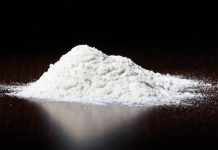We are all surrounded by older adults in our homes, at our offices, or the places where we study. We are constantly in touch with one or more seniors in our daily lives. And, we feel some empathy towards them if they are unwell or suffer from a disorder/disease. One of the most common ailments that affect older adults today is memory loss. Alzheimer’s disease affects many senior citizens. Dementia is also found to be pretty common among older adults. But lots of research are done every day on memory loss and they state that daily intake of multivitamins may slow memory loss in seniors. In this blog, let’s analyze the connection between multivitamins and memory loss prevention in seniors.
Memory Preservation and Daily Multivitamins
A balanced diet and regular exercise are crucial things in our daily lives. A balanced diet should contain all the nutrients, such as carbohydrates, proteins, vitamins, and minerals. In other words, it must include healthy food items. Vitamins play a primary role in being healthy. A deficiency of Vitamins B12 and D has been linked to cognitive decline. Vitamin B12 is known to play a role in synthesizing brain chemicals. It’s also involved in the regulation of sugar levels in the brain. Vitamins B12 and D are also crucial in an older adult’s diet because they are directly linked to brain functions.
So, by now, you would have understood the relationship between multivitamin supplements and memory function in seniors.
Multivitamins and Cognitive Decline in Elderly
Researches done all around the world show that taking multivitamins every day is associated with a 60% slowing down of cognitive aging. Taking multivitamins is an easy and inexpensive way to slow down cognitive decline in older adults. However, they can start taking multivitamins only after consulting their doctor/healthcare provider.
Can Multivitamins Replace Your Regular Diet?
Never! Multivitamins can never replace a healthy, balanced diet. They can only be a small portion of an individual’s normal diet. The intake of fresh fruits and vegetables, whole grains, and such healthy foods is of the utmost significance. Added to these, regular exercise, stress management, and sufficient sleep are vital. All of these factors contribute a lot to the proper maintenance of memory and other brain functions in any age group.
Which vitamin helps memory loss in old age?
Here are some important points about vitamin B12 and its role in memory:
- Vitamin B12 and Brain Health: Vitamin B12 is crucial for nervous system function, myelin production, and brain function, including memory and cognition.
- Memory and Cognitive Decline: Low vitamin B12 levels may cause memory problems in older adults, leading to cognitive decline and dementia.
- Homocysteine Regulation: Vitamin B12 regulates homocysteine metabolism, lowering risk of cognitive decline and neurodegenerative diseases, while maintaining memory preservation.
- Sources of Vitamin B12: Vitamin B12 is primarily found in animal-based foods like meat, fish, eggs, and dairy. Vegans can find plant-based sources like fortified cereals, milk alternatives, and nutritional yeast.
- Considerations for Older Adults: Older adults are more susceptible to vitamin B12 deficiency due to decreased stomach acid production and potential issues with intrinsic factor. Regular monitoring and healthcare consultation are recommended for effective absorption.
It’s worth noting that while vitamin B12 is important for memory and cognitive function, it’s just one piece of the puzzle. Maintaining a healthy lifestyle, engaging in regular physical exercise, getting adequate sleep, managing stress levels, and following a balanced diet rich in various nutrients are all vital for optimal brain health.


















